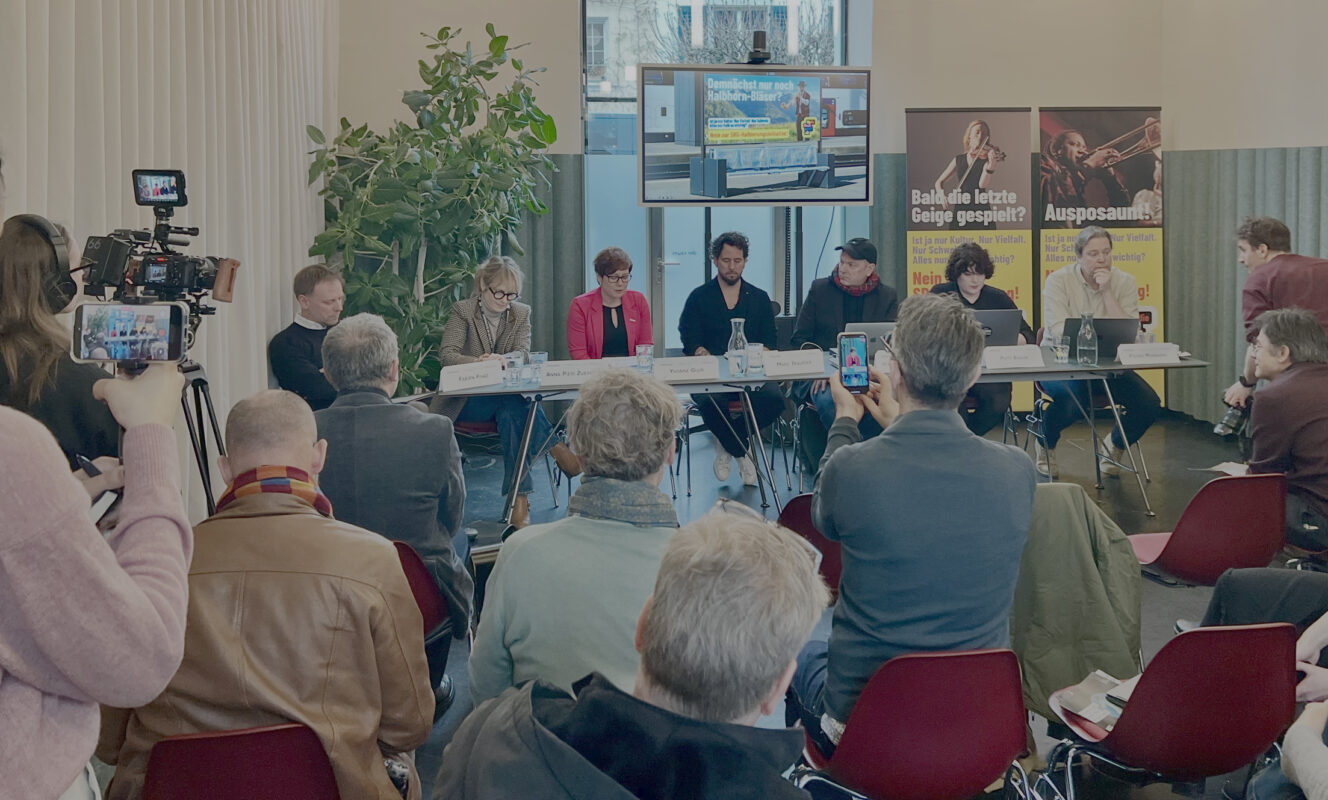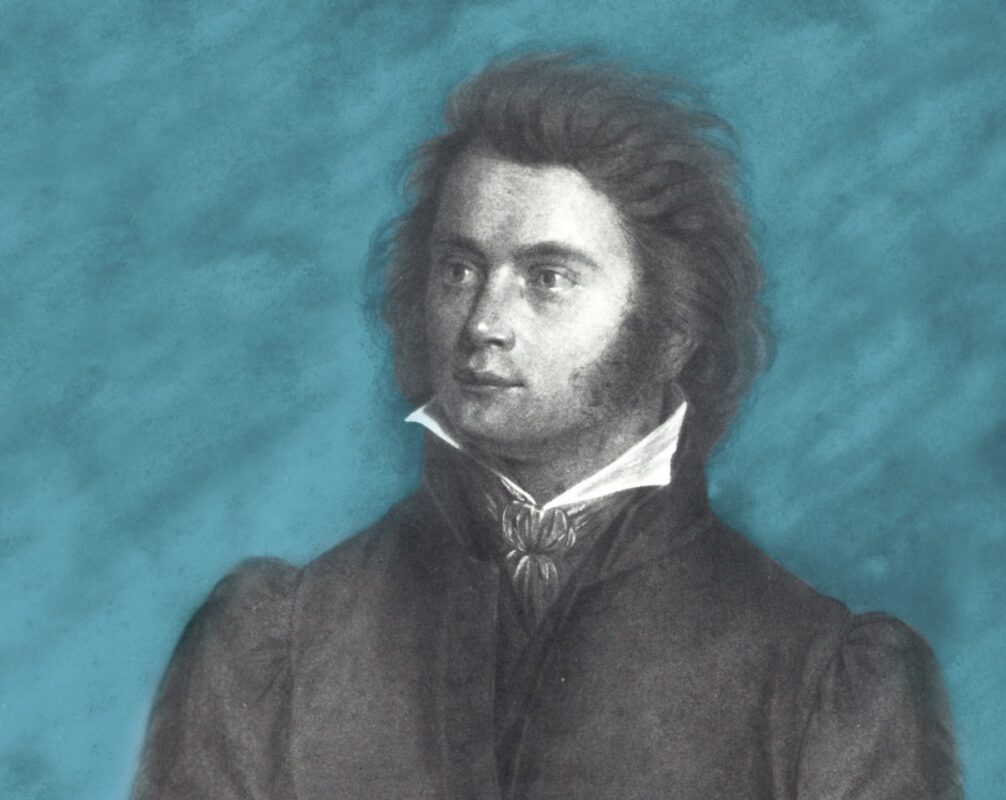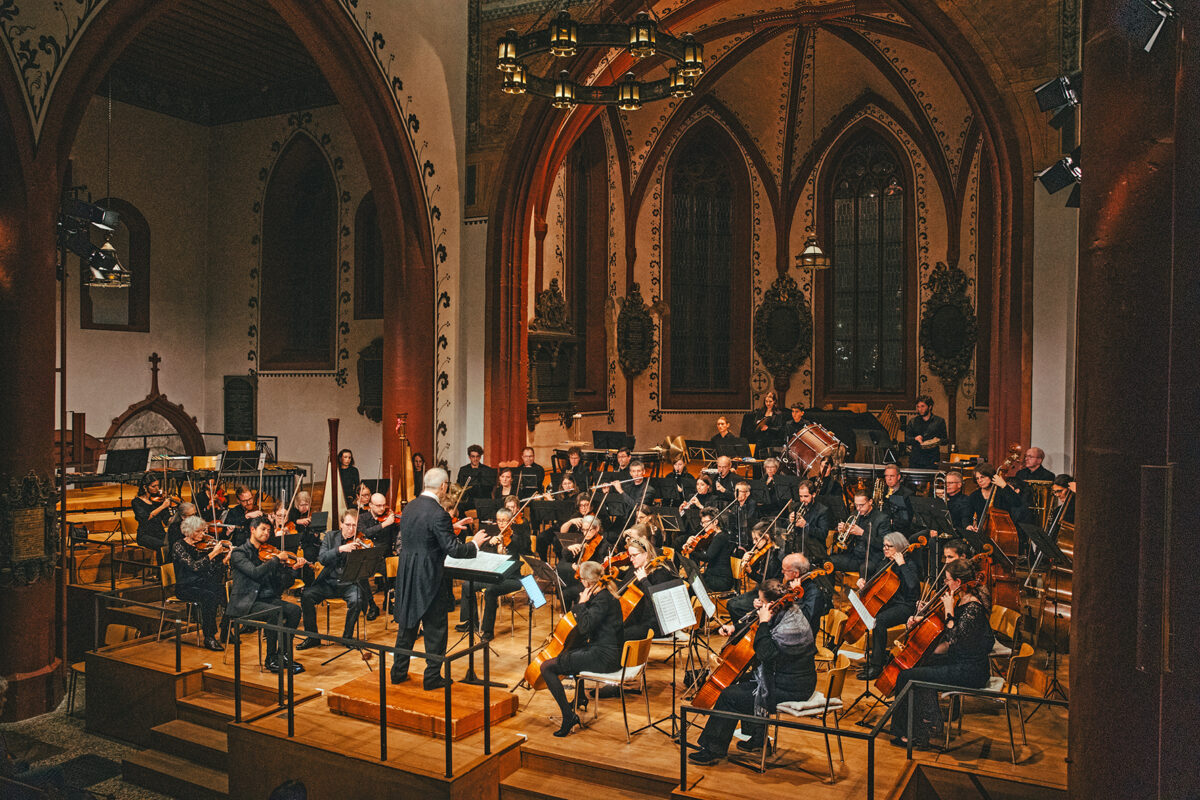Piano festival "Beflügelt": Promoting young talent in the industrial hall
Take two grand pianos, rent a room and create a festival. At first glance, "Beflügelt - A Festival for Two Pianos", which took place in Basel from August 26 to 29, seemed so simple.
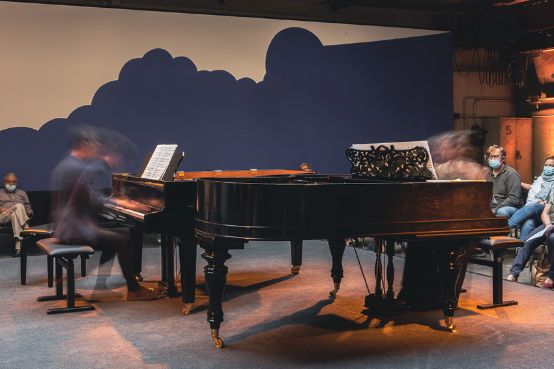
A simple recipe, but nevertheless extremely productive. Exciting concerts could be heard in a discarded small industrial hall, played by young pianists, most of whom were still in training. But that's not all: instead of Steinways, which are now standard on concert stages, two Grotrian Steinweg grand pianos were used.
The initiator of this festival was the Swiss Foundation for Young Musicians with its artistic director Isabel Heusser. For ten years, she has been supporting young musicians, offering them a platform for concerts on a small scale, such as half-hour lunchtime concerts every 14 days in her own business premises. In January 2021, Isabel Heusser was then asked if the foundation could loan an old Grotrian Steinweg grand piano to students at the Basel University of Music.
-
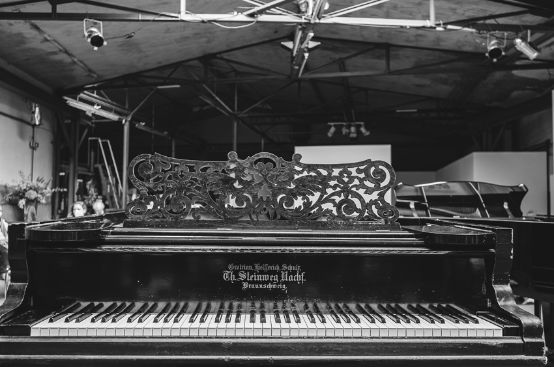
The historic grand piano looks orchestral in combination with the new instrument. Photo: Charlie Hui, viswerk.ch
The grand piano, built in 1895, has an eventful history behind it, as it belonged to a Jewish couple in Frankfurt who had to flee from the Nazis in 1933, but the instrument was saved and brought to Cambridge. Ten years ago, it was completely overhauled by Raphael Carnal in Bern, it was given new hammer heads and the soundboard was repaired, as Heusser explains: "This gave me the idea of using it to create a festival and contrasting the old instrument with a modern Grotrian-Steinweg from 2014."
Heusser wrote to pianists she had met during her time at the foundation and was overwhelmed by positive feedback and program suggestions: "85 percent of them were Russian composers, which of course I couldn't accept." And so she began to put together meaningful programs herself together with the selected performers.
Each duo was given a time frame of around 90 minutes in which to get used to the instruments, plus 20 minutes of warm-up time before each concert. The piano tuner was always on site. During this time, the duo had to choose their instrument and adjust the different sounds to each other.
The result was a festival with ten concerts in which a wide range of works were presented, from the classics in the concert "Gods on Mount Olympus" with Mozart's Sonata for Two Pianos in D major KV 488 and Brahmsʼ Sonata for Two Pianos in F minor op. 34b to "The Power of Creativity" with a world premiere by Amador Buda Fuentes Manzor (*1991).
One focus was on French music with the Sonata pour deux pianos by Francis Poulenc and Claude Debussy's Prélude à l'après-midi d'un faune in the composer's piano arrangement. As a specialty, Marco Scilironi and Florian Noack played the Symphony No. 3 Liturgique by Arthur Honegger in a piano arrangement by Dmitri Shostakovich.
Different handling of the two wings
The concert "Cuir de Russie, 1920" was entirely dedicated to Russian music and offered a cross-section of works, instrument characteristics and the pianistic skills of the performers. The historical grand piano presented itself in a good mood, with a soft and sonorous-sounding bass register, a broadly resonant middle register and a "bell-like" treble. The new instrument was more agile, more clearly focused in terms of sound, more balanced in the registers and with a different overtone than its old "colleague".
With Rachmaninov's early works Fantaisie-Tableaux op. 5 from 1893, almost the year the old grand piano was built, Zofia Grzelak and Martin Jollet, students at the Basel University of Music, played a piece well suited to their pianistic level and made ideal use of the two instruments: Grzelak on the new Grotrian, attacking and with virtuoso runs, Jollet fervently celebrating the special sonority of the old-timer and fully savoring the romance-like music of longing with lots of pedal.
Hanna Syrneva and Alik Balagozyan, who come from Belarus, had a tough program to complete. First the Fantasy in A minor op. posth. by Alexander Scriabin, followed by Nikolaj Methner Russian Round Dance and Knight Errant op. All of the works are virtuosic piano pieces, thrive on changes of mood and rhythm and are even contrapuntally intricate in Methner's case. However, the two young artists swept through the score as if there was a race to be won; unfortunately, there was little differentiation to be heard.
The conclusion after the interval was quite different with Rachmaninov's Symphonic Dances op. 45, which the composer himself arranged for two pianos. The duo Fuko Ishii and Denis Linnik performed at a high level, audibly well attuned to each other, with Fuko Ishii eliciting unusual sounds from the old grand piano. He was not as agile with fast runs and trills, but one was amazed at his ability to differentiate in terms of volume and touch. In the conversation afterwards, duo partner Linnik also said that it was easier to achieve an overall orchestral sound with these different grand pianos because they differed well from each other due to their overtones.
The simple hall called "Metallbau" was well suited to the freshness of what was on offer, but finding it in the Kleinbasel residential district is not easy without signage.
-
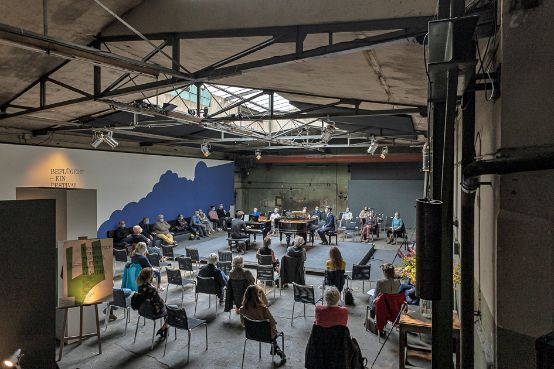
Duo Fuko Ishii and Denis Linnik in "Metallbau". Photo: Charlie Hui, viswerk.ch






